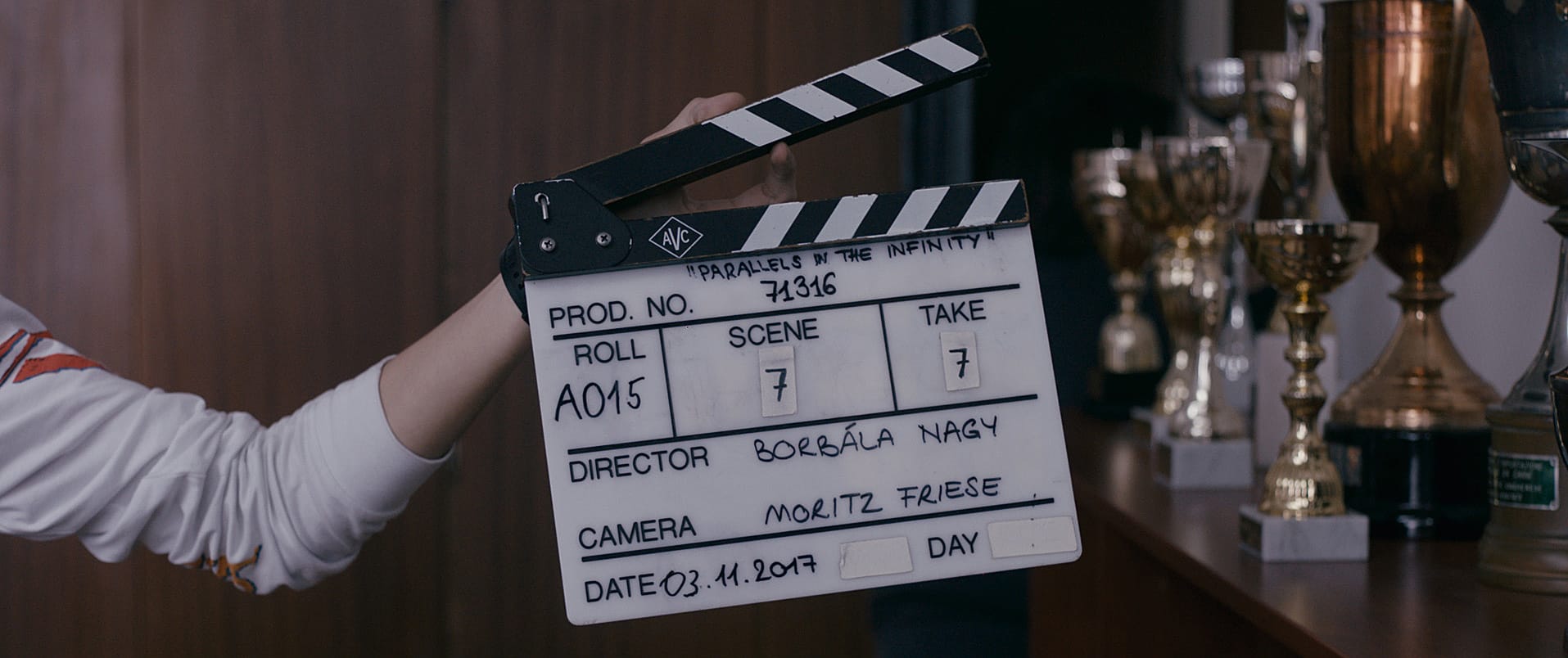Academy
13195

About the DFFB
Since 1966 the DFFB has hosted an open community of emerging filmmakers supported by the City of Berlin. DFFB was in its early years the only film akademie in the Federal Republic. Today it is one of a number of German film schools, but it retains a very distinctive teaching system and mission. The akademie has built a great tradition of craft and innovation through its first half century, and a special openness to international teaching, students, techniques, cultural influences and emerging platforms. It can be counted amongst the very few filmmaking akademies of the world that consistently transform the professional environments they populate and serve.
Alumnis of the DFFB are: Angela Schanelec, Wolfgang Petersen, Helke Sander, Wolfgang Becker, Christian Petzold, Connie Walther, Detlev Buck, Emily Atef, Harun Farocki, Hartmut Bitomsky, Raul Peck, Lars Kraume, Helga Reidemeister and Chris Kraus.
The Teaching
The DFFB offers a core program with two distinct stages: In the Grundstudium (semester 1–5) the program aims to stretch participants and deliver vital basic skills, both in technique and storytelling, plus professional ways of approaching their work and their colleagues. After these five semesters, in the Hauptstudium, DFFB members continue to deepen their specialist knowledge, and take on a growing level of responsibility for the operation of a kind of graduate Atelier – helping to develop and deliver graduation work, documentaries, TV series pilots, shorts and features, within an open studio structure. Screenwriters act as development executives, producers delve deeply into story development, directors support other directors as creative producers, cinematographers build define styles of collaboration and aesthetic preferences.
With these challenges, the DFFB program, offered to people who have already studied at degree level or had equivalent levels of professional experience, is designed for participants with certain personal aims: learning to collaborate creatively – from fellow students as much as from teachers — and to think about their own filmmaking practically; adopting a lifelong habit of interrogating their assumptions rigorously and then taking their instincts seriously. The students we want are open, resilient, collaborative, curious, imaginative people who learn through doing (and sometimes failing), people who have the courage and energy to develop their ideas to the limit.
Instead of working with a permanent staff of teachers, DFFB is built on full time Heads of specialist departments, Leitende Dozent*innen, with all other teaching by working professionals who contribute as freie Dozent*innen. Frequently this group includes international filmmakers on short residencies. The stimulating flexibility this brings to the program is a key source of strength, and of excitement, at DFFB.
Filmmakers who visited and taught at DFFB are: Luc und Jean Pierre Dardenne, Agnes Godard, Bela Tarr, Michael Ballhaus, Claire Denis, Nina Menkes, Pedro Costa, Albert Serra, Andrew Bujalski und Apichatpong Weerasethakul.
One thing these many part-time teachers have in common is the conviction that early and rigid specialization (deciding well before you study filmmaking in practice that you will be a director, a cinematographer, a producer, an editor…) can deprive talented students of a full education in the craft of filmmaking and limit the ability to adapt and innovate. The akademie puts strong emphasis on the deep learning of specialist technique, and asks students to nominate a specialization on application. But its vision of filmmaking collaboration is one of artisanal mutual dependence as a future-proof and complex means of achieving excellence. This means it rejects the building up of isolated or self-sufficient factory-style departments. In practice every student in their first two semesters, despite the nominated specialization, is treated as simply a filmmaker who is learning to be relied upon at high levels of skill and in the full range of roles. Each DFFB student will have a clear specialism from the third semester of study, but we also encourage and enable second specialisms, and frequently make films where a cinematography student directs or a director produces …
There’s a fine balance between technical training, where students gain key skills through making films, and the area of creative development, the process of trying to make these films extraordinary and valuable. In practice most important learning, in a conservatory school of any subject, blurs the boundaries of theory and practice, constituting a new range of skills acquired “while standing up”, as much in the muscles as in the brain. The starting-point at DFFB is to learn through the work itself, and to remain skeptical about whether creative practice can be taught in conventional ways, focusing on the unpredictable ways in which experience contributes to our expressive potential.
What does DFFB ask from new students?
To begin with: active participation in making a whole community’s work vibrant and valuable; the self-confidence and humility to always declare what they don’t know about the 7th Art and their chosen craft; endless and organised curiosity; a commitment to collaborate deeply and structure their own strategies for learning; and then the energy to write and develop screenplays and to make films which genuinely explore the infinite possibilities of screen storytelling.
